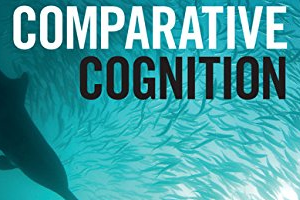
Overview
An overview of the evolution and function of cognitive processes. Emphasis will be placed on understanding how natural selection shaped cognition across animal species. Topics such as memory, decision making, cooperation, and communication will be examined from a behavioural ecology and experimental psychology perspective.
Learning Outcomes
Upon successful completion of this course students will be able to:
- Recognize and recall experimental findings that support or do not support existing theories in comparative cognition.
- Apply theories to predict outcomes of experimental manipulations.
- Engage in critical reading of primary and secondary sources.
- Combine critical reading skills and conceptual knowledge of comparative cognition to create a review of experimental findings for a broad audience.
Topics
- History of comparative cognition
- Sensory systems
- Memory
- Associative processes
- Orientation and navigation
- Causality and tool use
- Decision making
- Categorization and concept formation
- Social competence
- Prosocial behavior
- Communication
- Social learning
Terms
Evaluation
10% - Quizzes (10 of 12)
20% - Weekly Activities
10% - Review Question Prep
20% - Paper Assignment
10% - Summative Activity
30% - Proctored Final Exam
**Evaluation Subject to Change**
Exam Centre Location, Eligibility, and Fees
Students enrolled exclusively in online courses may choose one of two options to write this course's proctored assessments:
- You may choose to write the assessments online under supervision of an online proctoring service. A $100 fee will be charged to your SOLUS account. This fee is known as the Off Campus Exam Admin Fee and is applied in SOLUS at the earlier of: term tuition posting date, or the date at which exam writing method is changed to online. The fee is assessed once per ASO course with proctored assessments.
- You may choose to write the assessments in-person on Queen's campus in Kingston at no additional charge.
Students enrolled in at least one on-campus course are expected to write this course's proctored assessments on-campus during the scheduled exam time. They will not be permitted to write this course's proctored assessments online.
Students were prompted to indicate their preferred exam writing method when enrolling in the course in SOLUS. The exam writing method may be changed by contacting the ASO Exams Team at aso.exams@queensu.ca.
Information for students writing online assessments
Selected assessments in this course will be administered in onQ using online proctoring provided by a third-party, cloud-based service. This proctoring solution was chosen to support our efforts in maintaining academic integrity when online proctoring is required. Queen's has conducted an extensive privacy and security review of the service and has entered into a binding agreement with terms that address the appropriate collection, use and disclosure of personal information in accordance with Ontario's privacy legislation. To learn more about online proctoring, please see the information provided by the Office of the University Registrar.
If you registered to write online with the service, all information pertaining to the technical requirements and preparation for writing online will be posted in onQ well in advance of your exam.
The use of the service as described is unique to courses offered by the Faculty of Arts and Science Online. Other Faculties use online proctoring solutions in different ways under different regulations. Students should contact the appropriate Faculty examination team if they have questions.
Timing of Final Examinations
The exam period dates for each Term are listed on the Faculty of Arts and Science webpage under "Important Dates". Student exam schedules for the Fall Term are posted to SOLUS immediately prior to the Thanksgiving holiday; for the Winter Term they are posted on the Friday before Reading Week, and for the Summer Term they are individually noted on the Arts and Science Online syllabi. Students should not make any travel plans until after the examination schedule has been posted. Exams will not be moved or deferred to accommodate employment, travel/holiday plans or flight reservations. Students experiencing extenuating circumstances preventing them from writing their exams as scheduled should review the information about the Academic Consideration process.
Textbook and Materials
ASO reserves the right to make changes to the required material list as received by the instructor before the course starts. Please refer to the Campus Bookstore website at http://www.campusbookstore.com/Textbooks/Search-Engine to obtain the most up-to-date list of required materials for this course before purchasing them.
Required Textbook
- Olmstead, M.C., & Kuhlmeier, V.A. (2015). Comparative Cognition. Cambridge, UK: Cambridge University Press.
Time Commitment
Students can expect to spend approximately 9-10 hours a week (108-120 hours per term equivalent) in study/reading and online activity for.

